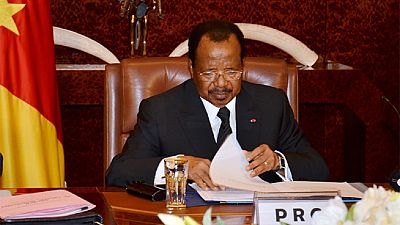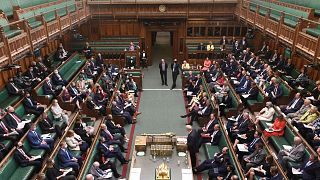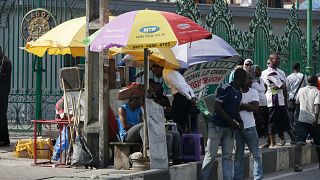Cameroon
The Cameroonian government has threatened to shut down satellite television operators who host a new pro-secession TV channel banned in January 2017.
The Minister of Communications Issa Tchiroma Bakary sounded the warning on Monday saying those who will broadcast the Southern Cameroons Broadcasting Corporation (SCBC) TV channel or programmes will be closed down.
He added that those found in breach of the order will have their equipment confiscated and legal actions taken against them.
The SCBC TV was launched on May 6, 2017, yet it was banned four months earlier by an order from the Cameroonian government.
They broadcast as the mouthpiece of the North West and South West Anglophone regions with political programmes designed to push for the dissolution of the 1961 union of the Southern Cameroons with Cameroun.
They refer to the region as Ambazonia, use the Southern Cameroons flag and broadcast messages from the Southern Cameroons “government” via satellite, social media and a designated news website.
The communications minister also announced that pupils in the two regions will undergo remedial classes in the first two months of the new school year to catch up with the lost school period affected by protests that rocked the region since late last year.
#BackToSchool Remedial courses to be organised for first two months of new school year in North West and South West regions pic.twitter.com/lFlDbRD2qO
— CRTVweb (@CRTV_web) August 28, 2017
The series of protests were against marginalisation.
Anglophone teachers, lawyers and students were beaten and intimidated by the security forces during peaceful protests against the imposition of the French language on their schools and courts.
Anglophone journalists also condemned a government order banning all radio and television discussions on the political situation in the region.
President Biya subsequently signed a decree establishing the National Commission of Bilingualism and Multiculturalism to solve the matter.
Many activists, however, call for the establishment of a two-state federation.
A video recently emerged showing a dozen detainees being held in a dark cell believed to be a military bunker. They went on a hunger strike against their inhumane treatment.
The government said it was not aware of the video.
#Cameroon. Southern Cameroonians held in captivity in a bunker in Yaounde.
LeahHardingAJEAJStreamBBCAfricacnni pic.twitter.com/2QB9KpuhHu— Gil Ekane (@GilEkane) August 5, 2017
Rights groups have raised concerns about increasing repression under the 35-year-old rule of President Biya.
Last month security forces prevented a news conference by Amnesty International that had been called to demand the release of three young men jailed in 2015 for sharing a joke.
At least eight journalists are reported to have been arrested during the crisis in the Anglophone regions late last year.
At least six people were shot dead, hundreds arrested and internet was cut off for three months in the region.
The arrested protesters are being held under anti-terrorism laws enacted as part of the battle against Islamist Boko Haram militants in the north.
Media rights group Committee to Protect Journalists (CPJ) had unsuccessfully demanded reasons for the arrest and detention of the journalists.













00:58
Cameroon: Presidential election set for October 12
02:55
In Cameroon, Paul Biya's candidacy divides his party
11:14
Rwanda Walks Away: what’s behind the Central Africa rift? [Business Africa]
01:12
Cameroon tops list of world's most neglected displacement crises
00:57
Nigeria crisis: 20,000 flee Marte after militant attacks
Go to video
Cameroon soccer great Emmanuel Kundé dies at age 68